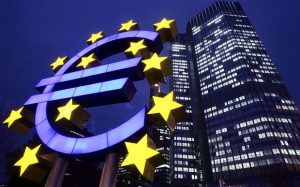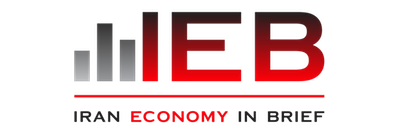

Banking lies at the heart of all financial activities. Without them any international business would slowdown, if not collapse. The nuclear deal has brought many business leaders to Tehran in recent weeks. However, banks still remain cautious. Max Meier, vice president of one of the major European banks in Germany, talked to me about Iran’s latest changes.
M.K.: Mr. Meier, many foreign companies are waiting for the sanctions to be lifted in order to reenter Iran’s market. In how long do you expect to see such developments?
MAX MEIER: I guess everybody moves very cautiously, and this is correct. Perhaps after the removal of the sanctions, it takes a bit longer for banks to present themselves in Iran. For banks it is essential to know their clients, the process in banking is called KYC (know your client). Iranian and foreign companies need us for trade and of course we support them and will do our best to speed it up, but first we have to wait for the sanctions to be lifted!
M.K.: What do you think will happen then to national production?
National production is a governmental and national issue to be supported. When it comes to consumer goods, instead of importing the goods, Iran should import the technology and then it is the Government’s responsibility to make appropriate policies to support local production. Otherwise, they will have no chance to compete with foreigners.
M.K.: In Germany, interest rate is almost zero. That discourages people from investing in saving accounts. In Iran, this is the opposite. There the best place to invest is the bank. How do you compare these two situations?
True, here people don’t gain by putting their money simply in the banks. They don’t gain even by buying Government bonds either: over ten years the yield is less than one percent. So they invest in other markets, like real estate or stock market. That is why for example you see the DAX grow up over the last year or the same for housing prices.
Although the situation in Iran is different and official inflation rate might be 15 percent, the real one is much higher and that is why the credit interest of the banks is 20 percent. Therefore, also in Iran, I don’t think that it is a very good idea to invest only in bank saving accounts. Diversification is a key strategy, or — as we say: never put your eggs in one basket only.
M.K.: Banks were at the core of the last financial crisis. How could you change this picture to regain trust from your clients?
This is true. Bankers have never been loved, and by the last crisis it became even worse. To regain the trust, we admitted our mistakes and started to change. Real banking is a service business. For ex- ample, in Private Banking we decided to extend our face to face relationship and to listen to our clients. We ask them to come to see us and for a 45 minutes consultancy, to hear their requests and concerns. Then according to this information, we analyze the requirements of our client and define adequate services and products. Statistics show that we have been quite successful as during the last year we could win 200,000 new clients.
M.K.: Does it mean that you don’t invest in Internet banking?
Not at all! We have a department called ‘direct banking’. Except once when you need to show up in one of the branches to verify your identity, the rest can be done through the internet or via phone. This is an essential service now-a-days. However, contrary to many other banks that are closing their branches, we want to keep our face-to-face relationship with the clients as well. We are trying to increase the channels by which they can reach us, whenever they need.
M.K.: Mr. Meier, I was surprised seeing your office! You have a very high position in the bank, how come you decided to have an open office?
You are right; normally directors prefer to have their own office. But I like being next to my colleagues, and I also prefer standing position for work. My job is mainly about communication, either face-to-face or on the phone. I spend lots of time in meetings, and if I work in a separate room for the rest of my time then I do not have the chance to communicate with my colleagues as much as I do now. That is why, I prefer an open office.
M.K.: What are your responsibilities as vice president of international business of the bank?
I work with the biggest clients of the bank: large and multi companies. I am responsible for the corporate’s portfolios on international scale. My responsibility is to advise them on their trade: to facilitate it, to secure it and guide how to increase their trade. I offer them my own and my bank’s knowledge and the network of the bank. I have to be accurately informed on their activities; for example, about the country, its markets, banks, risks, about the potential tools and their availabilities to our clients.
M.K.: So you spend lots of time in media?
News is vital to my work! I am continuously in media, since early in the morning until late evening. I spend more than 20 percent in media, nearly four hours a day. Additionally, we have a ‘news’ department in the bank which collects news related to our business or clients from international press. During the 70s we had a colleague who had to travel
six hours by train from Cologne to Frankfurt, forth and back every day. He used to buy seven daily newspapers every morning, reading and collecting relevant news, then sending it to the bank network. He did so for about two decades.
M.K.: You divide your clients into three groups: Private, Business and Companies. What is the basis behind this division?
Traditionally those clients, who deposited/borrowed more money in/from the bank, got more attention. This is always the logic behind all kind of divisions in general.
In each group we also have sub-groups. In private clients, we differentiate ordinary ones like you and I, from a sub-group of individuals with small private businesses, like dentists, lawyers, MRI-businesses who sometimes have a turnover up to €5m.
Then we have small and medium-sized businesses. In this group, we have seven sub-divisions, depending on their turnover, from €5 million to €250 million.
The last group is multi-national-companies, they are really big ones. They often require Investment Banking solutions like buying/selling smaller corporates etc.
M.K.: Does it help you to allocate your resources to offer the best service to each group?
This is exactly the reason behind these divisions. For example, our private clients are much more in number than those business one, therefore in terms of the time we spend for each group they are not equal.
Correct dividing let us follow our clients much better to support them. We constantly observe their development and when we see they are willing to increase their business; we try to be supportive to keep a win-win relationship.
M.K.: It seems that Startups are entering the financial world also. Do you consider them as competitors?
Startups are growing very fast and they might be relatively advanced in developing new financial services; however, they are still far from being real competitors. The reason is that when it comes to personal data, people prefer to trust banks rather than startups.
But it doesn’t mean that we ignore them, we are in- vesting in startups as well. For instance, in Frankfurt we have an incubator to support new ideas.
Mr. Meier, thank you very much for talking to us.
In order to respect our interviewee’s privacy, we used the nickname Max Meier.

Be the first to comment